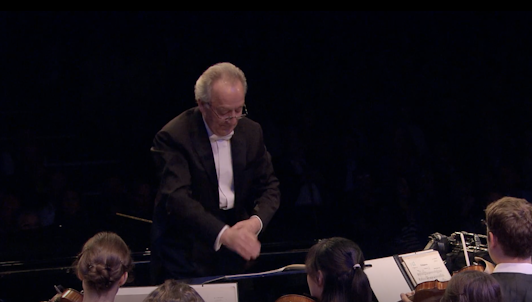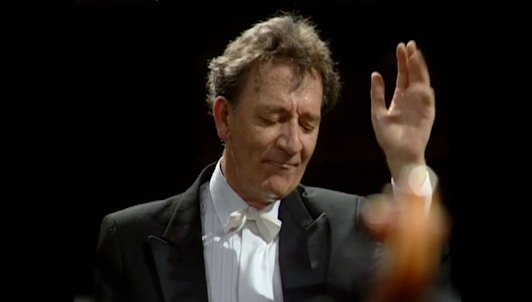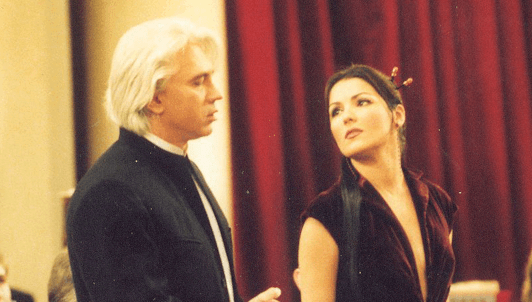The St. Petersburg Philharmonic Orchestra, conducted by its musical director Yuri Temirkanov perform Haydn's Symphony No. 94 and Shostakovich's Symphony No. 13, "Babi Yar."
The Symphony No. 94 in G Major composed by Haydn in 1791 is best known as the "Surprise" Symphony. The former wish of the composer was to add some variations to the main theme, sometimes with simple overtones, sometimes with dramatic ones. Afterwards, the sudden fortissimo that breaks the musical line was qualified by the composer himself as an effect which could "wake the ladies and make them jump!"
Considered one of the most iconic conductors around the world, Yuri Temirkanov is a Russian repertoire specialist, and Shostakovich appears to be one of his favorite composers. For the second part of this concert, Temirkanov conducts the composer's Symphony No. 13 named "Babi Yar". This is a committed work, composed after five poems written by Evgeny Evtouchenko, written to condemn the slaughter of more than 33,000 people, including many Jews, in Babi Yar's ravine in Ukraine. This mass crime, that dates back to 1941, was denied by the Soviet authorities for a long time.
Yuri Temirkanov recorded this masterpiece in 1995. For this concert at the St. Petersburg Philharmonic Hall, he is joined by the bass Petr Migunov, a soloist of the Bolshoi Theater, who made his debuts at Carnegie Hall and at the Lincoln Center in 2000.
“No monument stands over Babi Yar.
A steep cliff only, like the rudest headstone.
I am afraid.
Today, I am as old
As the entire Jewish race itself.
I see myself an ancient Israelite.”
(Babi Yar, poem by Evgueni Evtouchenko)
Yevgeny Mravinsky, who had personally premiered all of Shostakovich's symphonies since 1937, was supposed to lead the premiere, but for fear of reprisals under Khrushchev's regime, he decided not to conduct the work. Nearly sixty years after that, Yuri Temirkanov, often considered as Mravinsky's heir – he was his assistant at the head of the Leningrad Philharmonic Orchestra – conducts this historic masterpiece.
This symphony for orchestra, bass and male choir is original in using a mix of several genres (the symphony, the cantata, the opera). Its lyrics are very explicit. The work is developed in five movements that alternately remind of the martyr, the irreverence against Stalin's authority and then in the final allegretto the courage of men who took risks to fight against the ideology. In this orchestral performance of horror and despite the darkness of its theme, this Thirteenth Symphony develops a harrowing topic which is universal in scope.
Picture: Yuri Temirkanov
Dmitri Shostakovich: Symphony No. 13, "Babi Yar". © Editions Le Chant du Monde, Paris.



